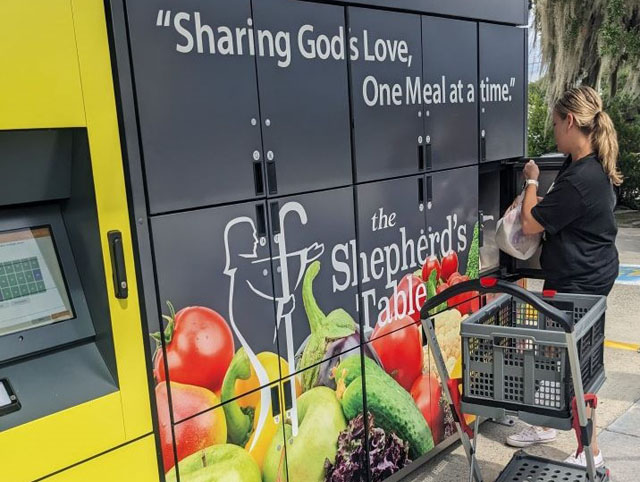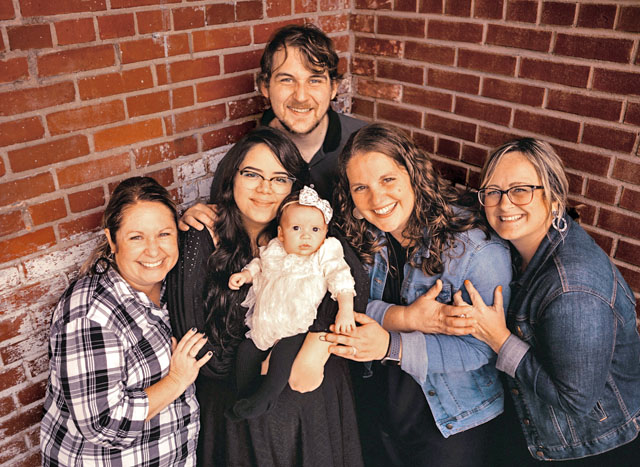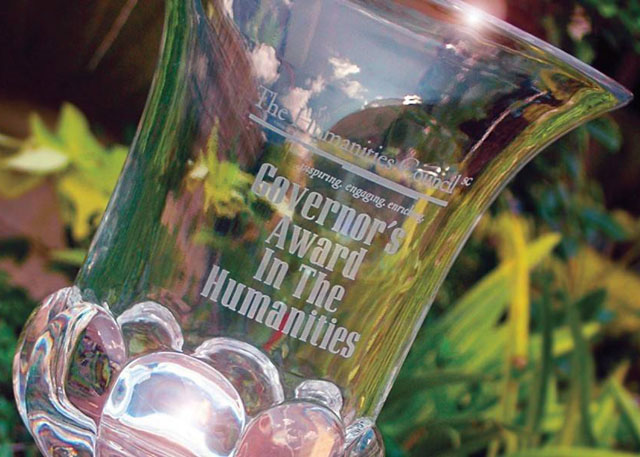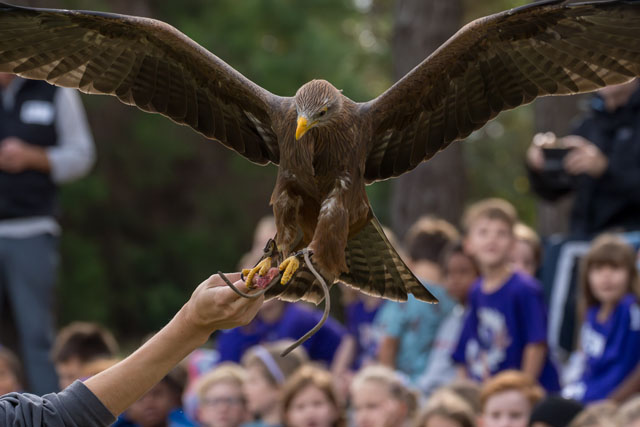Holiday Giving
02 Nov 2024
Charleston’s nonprofits strengthen our community
By Pamela Jouan

This holiday season, we celebrate local nonprofits making a profound impact in our community and beyond. They fight food insecurity, provide access to healthcare, the arts and bring clean drinking water to communities following natural disasters—most notably for our neighbors affected by Hurricane Helene. The strength and grit of these organizations is unmatched and their impact has touched countless lives.
Lowcountry Food Bank
2864 Azalea Dr., North Charleston
www.lowcountryfoodbank.org
Established in 1983 by Trident United Way and the Coastal Community Foundation, the Lowcountry Food Bank has become a vital lifeline for those facing food insecurity. Picture the organization as a central heartbeat—receiving, sorting, and storing food before distributing it across ten coastal counties in South Carolina. Last year alone, they moved 42.8 million pounds of food and essentials and distributed 35.6 million meals to those in need.
Jill Hirsekorn, vice-president of communications and marketing, highlighted that food insecurity in the communities served by the Food Bank has reached a 20-year high.
“This affects over 184,000 people, including 50,000 children,” she said. To tackle child hunger, the organization runs multiple School Food Center programs, such as BackPack Buddies, which provides weekend and holiday meal kits, and Kids Cafe, offering supper meal distribution through after-school programs. They also support students through monthly School Pantry boxes and permanent School Markets. Seniors and veterans benefit from partnerships with local organizations, including Meals on Wheels, ensuring these vulnerable populations receive consistent support.
Strong relationships with local growers are vital to the Food Bank’s mission. Last year, a Feeding America grant enabled the organization to strengthen its partnership with the Gullah Farmers Cooperative, which represents 11 Gullah farm operations across South Carolina’s Sea Islands, with 20 more in development. This partnership exemplifies the power of investing in communities to address systemic challenges.
“We know that communities of color experience food insecurity at disproportionate rates,” said Ami McReynolds, Chief Equity Officer of Feeding America. “The projects proposed by food banks and their community partners are inspiring. Our hope is to learn from these investments and, in partnership with those facing hunger, work to dismantle the systems that drive inequity and ultimately end hunger in America.”
The Lowcountry Food Bank is run like a well-oiled machine but fueled by the dedication of its volunteers, who collectively contributed 34,000 hours of service in 2023.
Greatest Need: Monetary donations are always the Lowcountry Food Bank’s greatest need. Every dollar donated creates five meals for those in need. Donate at lowcountryfoodbank.org

Lowcountry Pregnancy Center
7481 Northside Dr., Ste. B, North Charleston
lowcountrypregnancycenter.com
lpcfriends.com
Founded in 1986 in North Charleston, Lowcountry Pregnancy Center now operates with two additional satellite locations in West Ashley and Orangeburg, managed by Dazz Medical Services. Together, these centers offer life-affirming reproductive health and family services in a compassionate Christian environment, welcoming anyone who walks through their doors, regardless of where they live. Services range from pregnancy tests and counseling to parenting classes, fatherhood mentoring and access to a boutique filled with donated and new baby supplies.
With over 171,500 client visits to date, Lowcountry Pregnancy Center has been a vital resource for the community. The story that follows, shared in her own words by a young woman who came to the center overwhelmed and afraid after learning she was pregnant, captures the profound impact this non-profit has on those it supports.
“When I found out I was pregnant, I was struggling with bipolar depression and felt overwhelmed. I believed motherhood was impossible for someone like me—my father had died of a drug overdose, and I had no role models. I doubted I’d be a good mother. But everything changed during a deeply moving session with my counselor. She spent hours listening, never judging, only loving. She helped me see that I was stronger than I realized and that being a good mom wasn’t about material things. I cried in her office, and all the way home. That night, I told my boyfriend, now husband, “So, when do we start buying baby clothes?”
“We began taking parenting classes and felt supported every step of the way. The classes taught me there’s no single way to be a good parent and introduced us to safety tips I wouldn’t have known otherwise. They made me feel capable and cared for, as well as my husband, in every step. The love and guidance we received made all the difference.”
Greatest Need: Corporate sponsorships and private donations. Direct donations can be made online at lpcfriends.com. Lowcountry Pregnancy Center will hold three major annual fundraisers in 2025, the first of which will be their Annual Spring Banquet. Learn more at lowcountrypregnancycenter.com
Palmetto City Ballet
palmettocityballet.org
494 Wando Park Blvd, Ste A, Mt. Pleasant
info@palmettocityballet.org
Co-founder and Director Jonathan Tabbert’s enthusiasm for Palmetto City Ballet is palpable. As resident choreographer, his dedication has shaped the school, which offers classes ranging from beginner levels to ballet V, as well as jazz and modern, since its founding, 13 years ago. Over the years, the ballet has trained hundreds of dancers, some of whom have gone on to prestigious companies like the New York City Ballet and Alvin Ailey.
“We (also) have students who train simply because they love ballet, carrying the life lessons learned from such a disciplined art form into their everyday lives,” Jonathan adds. The school also provides financial aid and merit-based scholarships to ensure accessibility for all.
On the performance front, the Company has expanded from six professional dancers in its first season to 15 as they enter their tenth. With its growth, Jonathan envisions taking the performances on the road, with regional touring plans on the horizon.
“We have a true passion for local collaboration and have embraced it through the years, partnering with everyone from children’s authors and Charleston’s first Poet Laureate, Marcus Amaker, to esteemed arts organizations like the Charleston Symphony Orchestra and North Charleston Pops,” says Tabbert. “Our goal is to continue nurturing these relationships and building new ones within the arts community.”
This year, the company’s annual holiday production of The Nutcracker will take place at the Sottile Theater from December 20-22. Looking ahead, Palmetto City Ballet will debut an entirely new adaptation of Shakespeare’s A Midsummer Night’s Dream on March 15-18, 2025.
Like many nonprofits, Palmetto City Ballet relies on support to cover general operating expenses. With continued contributions, the company aims to expand its reach and deepen its impact on aspiring dancers and the arts community at large—starting with raising awareness. “There are still many people in this community who don’t realize Charleston has a professional ballet company. Our goal is to spread the word about the incredible, high-caliber performances happening right here,” says Tabbert.
Greatest Need: Corporate sponsorships and private donations. Visit palmettocityballet.org or contact Jonathan directly at
info@palmettocityballet.org.
Park Circle Cares
parkcirclecares.org
445 Old Park Road, North Charleston
facebook.com/parkcirclecares
Orly Janssen, president and treasurer of Park Circle Cares, knows the strain of rising food costs. After leaving her 29-year career, she now devotes her time to securing grants and resources for the nonprofit she co-founded in 2016. Park Circle Cares purchases food from the Lowcountry Food Bank and other organizations to transport food goods to neighborhoods in North Charleston that have a high food need.
Most of their food comes from Lowcountry Food Bank’s 'Fresh Express' produce program, which Janssen praises highly. Proteins are sourced from a variety of places, including Sam’s Club when the budget allows. Dry goods, which are the costliest, are often supplemented by local canned food drives.
“I won’t distribute anything I wouldn’t serve my own friends and family,” Janssen said.
They run a tight ship. Park Circle Cares recently rented a storage space, a significant expense for a donation-based organization. Their equipment includes tents, a refrigeration unit, and three commercial freezers which are essential for storing proteins.
Janssen is especially grateful for the parent advocates and teachers at North Charleston High School, who have partnered with them since summer 2021. “Every third Saturday, we use their space, tables, restrooms and outdoor gazebo, and some of their teachers and student volunteers,” she said. Park Circle Cares also collaborates with local community centers and churches for food distributions, extending their impact across the region.
“Most of our events operate as same-day distributions. The Food Bank drops off supplies just half an hour before we start, and within minutes, we have 20 to 30 volunteers ready to go, plus a dedicated team just to help seniors get food to their cars,” Janssen shared. These monthly mass food distributions are the most efficient and cost-effective way to serve the community—and they promote community. “Our clients love them. They come early and have become great friends. The volunteers have built strong bonds, too.”
Still, Janssen envisions establishing a permanent location to offer weekly, pantry-style drop-ins for even greater access.
Janssen credits local businesses like Atlas Technology and Boeing for their tremendous support. “They provide not only financial backing but also an incredible group of enthusiastic, kind, and compassionate volunteers.”
In addition to corporate contributions, Janssen pieces together funding from mini-grants, private donors, and the generosity of the Park Circle business community. Commonhouse Aleworks owners Pearce Fleming and Hank Hanna have donated proceeds from their "unCOMMONly Good" kegs to the cause, while Eric and Carly Hara of Park Circle newcomer Barnyard Chicken donated proceeds from their signature Brick Chicken dish during their first two weeks of opening.
"We always wanted our opening to contribute to a larger cause within the Park Circle community,” said Chef Eric Hara. “Park Circle Cares’ mission to combat food insecurity really resonates with us, and we are excited to support them in the future. It was incredible to see how many patrons were eager to order the Brick Chicken both for the dish and the donation."
Greatest Need: Direct donations can be made through parkcirclecares.org. The organization is always in need of dry goods such as rice, pasta, low- or no-sodium canned vegetables, and fruit, which can be dropped off at 445 Old Park Road.
Water Mission
1150 Molly Greene Wy Bldg. 1605
North Charleston
www.watermission.org
Water Mission is a Christian engineering nonprofit that builds safe water, sanitation and hygiene solutions in developing communities, refugee camps and disaster areas around the world, filtering water from rivers and streams through its patented safe water treatment system to provide safe, sustainable and clean drinking water.
The North Charleston-based organization was founded after Hurricane Mitch devastated Honduras in 1998, spurring its founders to design and build a patented safe water treatment system.
Since then, Water Mission has responded to some of the world’s most devastating natural and humanitarian crises around the world.
After Hurricane Helene tore through the southeastern United States in September 2024, leaving millions without power or safe drinking water, almost immediately Water Mission deployed their disaster response team to the hardest-hit areas in western North Carolina, starting in Boone.
Just one week after the storm hit, Water Mission deployed to the areas and had clean, safe drinking water flowing. Water Mission’s larger systems can serve up to 5,000 people daily, providing 10,000 gallons of water. Less than two weeks after the storm hit, Water Mission had installed four safe water treatment systems on their way to their goal to install a total of 20 systems. It had also distributed more than 400 generators to people in need, working towards a goal of more than 1,000 generators distributed.
Over its 23 years of existence, Water Mission has served more than 8 million people in 60 countries. While their impact is great, more than 2 billion people worldwide still lack access to safe water. Water Mission believes this crisis can be solved, and its vision is that all people have safe water and an opportunity to experience God’s love.
Greatest need: By giving to Water Mission, you can change the lives of people impacted by disasters like Hurricane Helene. Donate directly at watermission.org/give or visit watermission.org to learn how to get involved. - Gregg Dinino












